Related Research Articles

Samuel Huntington was a Founding Father of the United States and a lawyer, jurist, statesman, and Patriot in the American Revolution from Connecticut. As a delegate to the Continental Congress, he signed the Declaration of Independence and the Articles of Confederation. He also served as President of the Continental Congress from 1779 to 1781, President of the United States in Congress Assembled in 1781, chief justice of the Connecticut Supreme Court from 1784 to 1785, and the 18th Governor of Connecticut from 1786 until his death. He was the first United States governor to have died while in office.

Granby is a town in northern Hartford County, Connecticut, United States. The town is part of the Capitol Planning Region. The population was 10,903 at the 2020 census. The town center is defined as a census-designated place known as Salmon Brook. Other areas in town include North Granby and West Granby. Granby is a rural town, located in the foothills of the Litchfield Hills of the Berkshires; besides the suburban natured center, the outskirts of town are filled with dense woods and rolling hills and mountains. From the 1890s to the 1920s, many immigrants from Sweden came to reside in the town.

Simeon Eben Baldwin was an American jurist, law professor, and politician who served as the 65th governor of Connecticut.
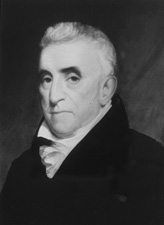
David Daggett was a U.S. senator, mayor of New Haven, Connecticut, Judge of the Connecticut Supreme Court of Errors, and a founder of the Yale Law School. He helped block plans for the first college for African Americans in the United States and presided over the conviction of a woman running a boarding school for African Americans in violation of Connecticut's recently passed Black Law. He judged African Americans not to be citizens and supported their colonization to Africa.
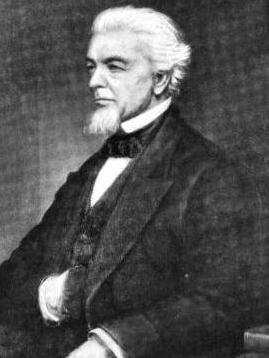
William Wolcott Ellsworth was a Yale-educated attorney who served as the 30th governor of Connecticut, a three-term United States Congressman, a justice of the State Supreme Court.
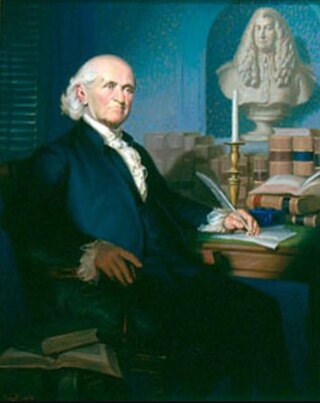
Zephaniah Swift was an eighteenth-century American writer, judge, lawyer, chief justice, congressman, law professor, diplomat and politician from Windham, Connecticut. He served as a U.S. Representative from Connecticut and State Supreme Court Judge. He wrote the first legal treatise published in America.
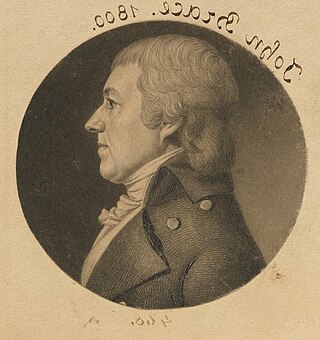
Jonathan Brace was an eighteenth-century American lawyer, politician and judge. He served as a United States Representative from Connecticut.
Ellen Ash Peters was an American lawyer and judge. She was appointed to the Connecticut Supreme Court in 1978. She was the first woman appointed to that court.

Marcus H. Holcomb was an American politician who served as the 66th governor of Connecticut, the attorney general of Connecticut, and as a member of the Connecticut Senate.
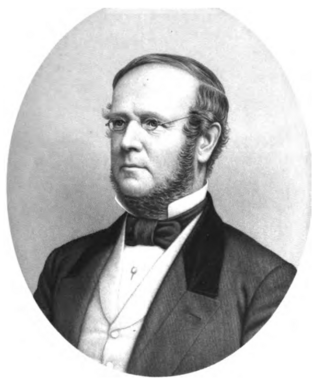
Charles Johnson McCurdy was an American lawyer, diplomat, and the 40th Lieutenant Governor of Connecticut from 1847 to 1849.

George Elijah Hinman was an American lawyer and politician from the state of Connecticut. He was a Republican.

Samuel Oscar Prentice was a lawyer, judge, and chief justice of the Supreme Court of Connecticut.
Allyn Larrabee Brown was a lawyer, judge, and chief justice of the Connecticut Supreme Court.
Theodore Mills Maltbie was a lawyer and a member of both the Connecticut State Assembly and the Connecticut State Senate. He was a member of the Connecticut Constitutional Convention of 1902.
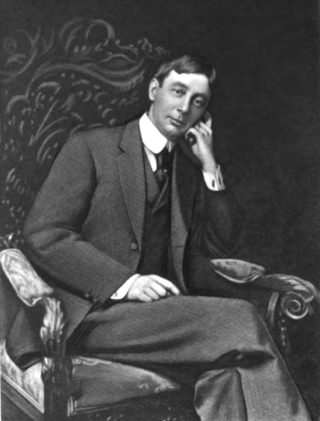
Asa Palmer French was an American attorney who served as the United States Attorney for the District of Massachusetts from 1906 to 1914.
John Wallace Banks was a justice of the Connecticut Supreme Court from June 30, 1927 to September 22, 1937.

William Scoville Case was a Connecticut lawyer, author, and judge who served as an associate justice of the Connecticut Supreme Court from 1919 to 1921.

George Seymour Godard was an American librarian who served as State Librarian and director of the Connecticut State Library from 1900 to 1936. His political and administrative savvy led to the State Library becoming a well-funded and nationally recognized model of efficiency and public service. Godard was named to the American Association of Law Libraries Hall of Fame in 2010.

Derek Read Molter is an American lawyer from Indiana who serves as a justice of the Indiana Supreme Court since 2022, after he was appointed by Governor Eric Holcomb. He previously served as a judge of the Indiana Court of Appeals from 2021 to 2022.
Howard Wells Alcorn was an American lawyer, politician, and judge. In his long career he served as the Speaker of the Connecticut House of Representatives in 1931 and Chief Justice of the Connecticut Supreme Court from 1970 to 1971.
References
- ↑ Cases Argued and Determined in the Supreme Court of Errors of the State of Connecticut, December, 1915 - July, 1916, New York, 1917, p. 725-6
- ↑ http://www.cslib.org/memorials/maltbiew.htm Connecticut State Library bio, from the connecticut Record